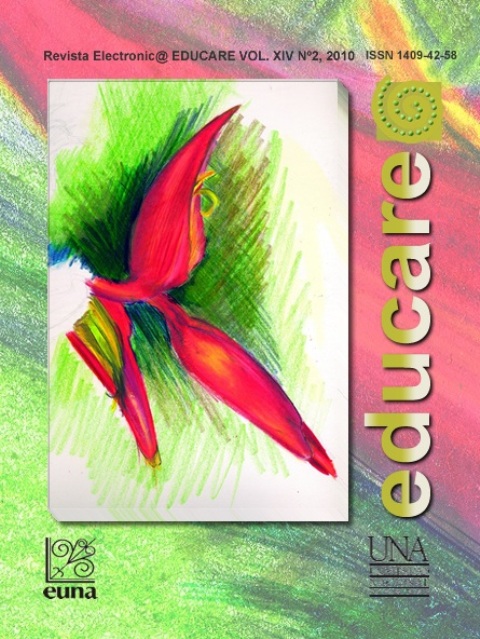Secular Criticism in the Teaching of Literature: A Bridge to Connect the Letters with Human Experiences, Social Realities and Institutions of Power
DOI:
https://doi.org/10.15359/ree.14-2.6Keywords:
literary criticism, secular criticism, literature teaching and learningAbstract
Abstract. Based on the contribution of Palestinian literary critic and thinker Said (1983), who coined the term “secular criticism,” this article analyzes the possibility of applying this concept to the process of teaching literature at elementary, secondary and college levels. We should understand secular criticism as the mode of textual analysis that sees literature inherently linked to human experiences, social realities in which it is produced and to the institutions of power that consent or suppress it. The main proposal of the article will be to suggest a methodology to approach literary texts in the classroom from a mundane perspective; that is, linking them to the outside world. In this sense, and using primary literary sources as examples, as well as literary theory, the article will propose turning the study of literature into a tool to analyze, question and challenge the realities that produce it.
References
Bayoumi, M. y Rubin, A. (2000). The Edward Said Reader. Nueva York: Vintage Books.
Dobles, F. (1996). El sitio de las abras. San José: Editorial Costa Rica.
Eagleton, T. (1993). Literary Theory: An Introduction. Nueva York: Vintage Books.
Guerin, A. (1999). A Handbook of Critical Approaches to Literature. Nueva York: Oxford University
Press.
Gunn, G. (2004). On Edward Said. Scholarship Repository, 18, 21-34. Recuperado de escholarship.
org/uc/item/6sj5q7nq
Mufti, A. (2004). Critical Secularism: A Reintroduction for Perilous Times. Boundary 31(2), 5-11.
Ranson, J. (1979). The New Criticism. New York: Greenwood Press.
Said. E. (1978). Orientalism. Nueva York: Vintage Books.
Said, E. (1983). The World, the Text, and the Critic. Nueva York: Vintage Books.
Said. E. (1992). Cultura e imperialismo. Barcelona: Editorial Anagrama.
Shakespeare, W. (1976). La Tempestad. (Obras completas). Londres: Penguin Books.
Downloads
Published
How to Cite
Issue
Section
License
1. In case the submitted paper is accepted for publication, the author(s) FREELY, COSTLESS, EXCLUSIVELY AND FOR AN INDEFINITE TERM transfer copyrights and patrimonial rights to Universidad Nacional (UNA, Costa Rica). For more details check the Originality Statement and Copyright Transfer Agreement
2. REUTILIZATION RIGHTS: UNA authorizes authors to use, for any purpose (among them selfarchiving or autoarchiving) and to publish in the Internet in any electronic site, the paper´'s final version, both approved and published (post print), as long as it is done with a non commercial purpose, does not generate derivates without previous consentment and recognizes both publisher's name and authorship.
3. The submission and possible publication of the paper in the Educare Electronic Journal is ruled by the Journal’s editorial policies, the institutional rules of Universidad Nacional and the laws of the Republic of Costa Rica. Additionally, any possible difference of opinion or future dispute shall be settled in accordance with the mechanisms of Alternative Dispute Resolution and the Costa Rican Jurisdiction.
4. In all cases, it is understood that the opinions issued are those of the authors and do not necessarily reflect the position and opinion of Educare, CIDE or Universidad Nacional, Costa Rica. It is also understood that, in the exercise of academic freedom, the authors have carried out a rogorous scientific-academic process of research, reflection and argumentation thar lays within the thematic scope of interest of the Journal.
5. The papers published by Educare Electronic Journal use a Creative Commons License:














 The articles published by Educare Electronic Journal can be shared with a Creative Commons License:
The articles published by Educare Electronic Journal can be shared with a Creative Commons License: 



